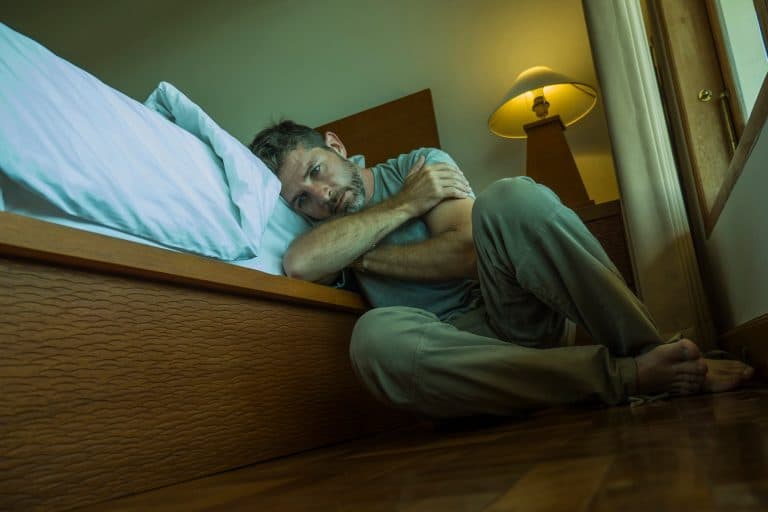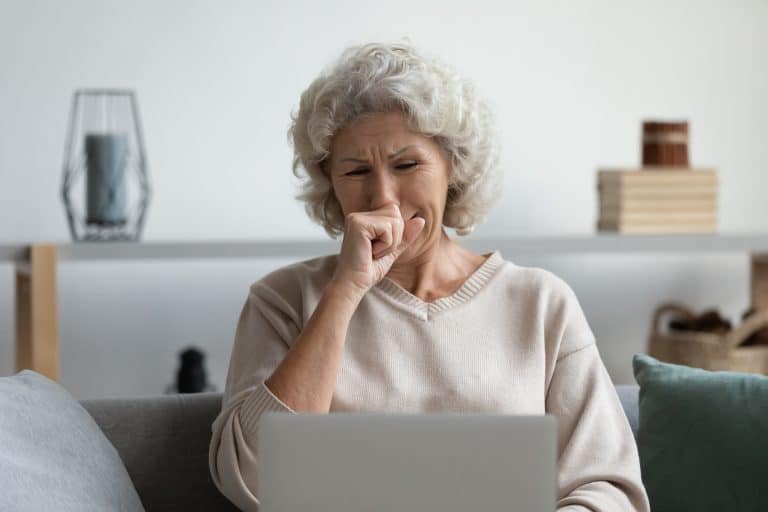Being anxious is normal in situations where there is danger or in uncertain times. It helps you stay safe. But when anxiety is a constant companion you can have a problem.
There is no one cause for anxiety. A combination of factors cause it. These include your genetic predisposition, personality type, exposure to continual stress, physical and mental health and substance abuse.
Genetic predisposition
Some people are genetically predisposed to anxiety and there may be a family history of mental health issues. But if you have a close family member with anxiety, it is not a foregone conclusion anxiety will affect you. It just means you have a higher chance of developing an anxiety disorder.
Affect of your personality type
Different personality types naturally handle anxiety better. For example, type A people are high achievers with their behaviour often described as neurotic. They can be workaholics but are the most likely of all personality types to develop stress-related issues and to engage in self-defeating behaviours. Where a type B personality is normally pretty laid back so is more likely to take preventive measures when under stress than a type A personality.[1]
Exposure to continual stress
Anxiety may develop when continually exposed to stress. Some of the common triggers include:
- Problems within your relationships.
- Moving to a new house.
- Pregnancy and becoming a new parent.
- Stress at work or changing jobs.
- Loss or death of a loved one.
- Emotional, verbal or sexual abuse.
- Experiencing a traumatic event.
- Relationship break down.
Physical and mental health
Poor physical and mental health can contribute to anxiety or impact any treatment you are receiving. Physical conditions associated with anxiety include:
- heart disease
- asthma
- diabetes
- hypertension.
But you must also be aware that some physical illnesses such as an overactive thyroid can mimic anxiety. Anxiety can also occur with other mental health conditions. For example, people with depression may also have anxiety. Make sure you see your doctor for a proper diagnosis and treatment.
Alcohol and substance use
Using alcohol or drugs to help cope with your symptoms can actually aggravate your anxiety. Maybe not while you are using it but when its effects start to wear off. In essence, using substances are more likely to negatively impact an anxiety condition. So seek help for both the substance use and anxiety.
What causes anxiety in you is different for someone else. And there can be a number of factors that contribute. You may never know what causes your anxiety. What is important is recognising the signs and seeking help.

10 tips for a healthy mind and body
Anxiety can negatively affect all parts of your life. Here are 10 tips for a healthy mind and body. Try a few to start with. It just may help manage your anxiety.
Keep your mind healthy
Negative self-talk can run riot when anxiety kicks in. This can cause distress so you become distracted and your productivity levels drop. Just remember, worrying about something, the more likely it is to occur.
Here are some tips to help keep your mind healthy.
1. Stop avoiding situations
Anxiety is a problem when it prevents you from taking part in daily activities. But avoidance only makes fear and anxiety grow stronger. To stop avoiding situations, it can be helpful to:
- Evaluate what you avoid. Consciously take note of the situations and places you avoid because of anxiety but would like to overcome. Write them down.
- Rate your fear level of each. On a scale of 1 to 10 rate your fear level for each one.
- Negative self-talk. Does your negative self-talk increase your anxiety levels?
- What are your goals? Write a list of your goals. How does anxiety interfere with achieving these?
- Start facing your fears. One step at a time start exposing yourself to the places and situations that make you anxious. Try not to escape immediately. Try to tolerate any anxiety. Give it 5 minutes then leave. Build up the time you stay and take a friend with you if it helps.
- Challenge negative self-talk. Challenge your negative self-talk when you notice it running rampant around your head. Tell yourself that while you feel anxious, “I can do this”. Remember times when you had no fear. Even write these down as reminders.
2. Disrupt anxious thoughts
It is difficult to think straight when you are overly anxious. Disrupting anxious thoughts can help you focus.
Is constant worry a good friend? Do you question everything with ‘what if’? To disrupt your anxious thoughts:
- Focus them on something you enjoy or that makes you laugh (dinner with the family, a night out with friends).
- Say what worries you out loud.
- Listen to your favourite song and dance to it like no one is watching.
- Intentionally concentrate your focus on what you are trying to achieve. Remind yourself that worrying is not going to help.

3. Challenge your thinking
When you feel anxious, you may focus on the worst possible outcome even though there is little chance it will occur. This only serves to increase your anxiety. To challenge your thinking:
- Tell yourself that what you are thinking has no basis in fact. Just because you fear this will be the outcome does not mean it will come true.
- Challenge yourself to think of an outcome that is more positive and more likely to occur. Ask for help if you need it.
- Remember times in the past when your worrying has proved to be wrong.
4. Control your worrying
Worrying that gets in the way of working or your normal daily activities is out of control. Try to control your worrying. Give yourself some time out:
- Can you solve what worries you? Is part of it within your control? Or is it outside of your control and there is nothing you can do about it?
- Find solutions for the worries you can do something about. Determine the problem and come up with possible solutions. Look at the pros and cons of each one to decide the best solution. Make a plan of action to deal with the problem instead of worrying about it.
- Use relaxation techniques to reduce your worrying about situations you can do nothing about.
- Make a conscious effort to worry only once a day. Set aside around 15 minutes to worry once a day. Write them down in a journal and worry your hardest during that time. If worries pop into your head again that day, remind yourself you have already spent time worrying about that today.

Keep your body healthy
Anxiety can cause physical symptoms such as difficulty breathing, tense muscles, dizziness and a racing heart. These can hit you without warning and be upsetting. But you can prevent or decrease the symptoms by looking after yourself and learning to relax.
5. Look after yourself
You are probably so busy you never find time to look after yourself or to relax. No wonder your body is sending you negative signals. To practice self-care:
- Eat healthy meals every day.
- Exercise regularly even if it is a walk during your lunch break a couple of times a week. It helps you to relax.
- Try to reduce the amount of caffeine, nicotine or alcohol you have every day.
- Make time for breaks and fun activities.
- Sleep well.
6. Learn to breathe deeply
Deep breathing can help disrupt an anxiety response. It can relax you, and help you feel calmer and more grounded. You can practice deep breathing for a minute at a time no matter where you are. Breathe in slowly to a count of four and exhale on a count of six. Do this several times a day.
7. Practice mindfulness
Practice mindfulness. Heightened awareness of yourself and environment without being judgemental can be relaxing and give you a sense of calm. To practice mindfulness:
- Sit comfortably.
- Close your eyes. Focus on your breathing. Observe how the air feels as you breathe in and out. What sensations do you feel?
- Change your focus from yourself to your environment. What do you hear and smell? What can you feel (the fabric of the chair you are sitting in)?
- Switch your focus between your body and your environment several times.
8. Use relaxation techniques
Use relaxation techniques when you feel stressed and your body tenses up:
- Imagine that tension leaves your body as you breathe out and is replaced with energy and a sense of peace as you inhale.
- Picture something that is relaxing to you (walking along a beach or playing with a pet) when feeling tense or anxious.
- Make time for regular relaxing activities (massage, go out for a meal) in your busy schedule.
9. Avoid overdoing it
When some people are anxious, they try to reduce it by keeping busy. While this will distract you in the short term, eventually overdoing it will leave you feeling overwhelmed and overworked. Does this sound like you? Do you have to be busy all the time especially when anxious? Is it difficult to slow down and relax? Do you feel anxious when you have unexpected free time?
- Write a list of activities as a back up when you suddenly find yourself with free time. Preferably these should be enjoyable and relaxing such as watching a movie or drinking a cappuccino at a café while watching the world go past.
- Allow others to help even if they do things differently to the way you would do them.
- Laugh out loud. Have fun. Enjoy yourself. Life is not all about ‘what ifs’ or worrying or work. Watch a funny video or appreciate a funny meme on days of high stress.
10. Plan for success
Plan for success. Regularly practice the tips you choose to use to help manage your anxiety. Practise often enough and they will become a new healthy habit:
- Take the time to learn about anxiety so you know the truth.
- Set short and long-term goals and determine the skills you need to achieve them.
- Use your breathing techniques and mindfulness when feeling anxious.
- Do not be hard on yourself, if you experience a setback. They happen. See it as a lesson rather than as a problem.
There is help for your anxiety
Managing anxiety can be difficult. This can be because everything can become overwhelming. But it is important to make an effort to try different techniques to support any medication and therapy. It just may help. Until you do something about your anxiety, it may continue to have a negative impact on your overall health.
With some simple changes to your life and practice, you can learn to manage anxiety. Keep you body and mind healthy. Gradually stop avoiding situations. And it helps to disrupt anxious thoughts, challenge your thinking and control your worrying. You need to look after yourself and plan for success.
If your mental health has become a problem, it is time to turn it around. Time to do something positive about it. Seek help. You do not have to go through it alone. The sooner you get help, the sooner you can start taking good care of your mental health.
Reach out
If you are struggling, reach out to our professionals. When you are not coping, contact us. We can talk to you about getting your life back on track. But if you reach a crisis point, call us immediately. We are here to support you.
We can work with you over the phone, via Skype or in our Spas. Book in today for my Emotional Empowerment Program. I have an introductory offer for just $79 so you may start taking back control of your life. We aim to help you cope with anxiety. Our facilitators may alleviate the effects of anxiety so you can start to enjoy life again.
Let me help alleviate the effects of mental health issues
My Emotional Empowerment Program has helped many people like you for more than a decade. My aim is to help you manage anxiety. This can give you a new hope for the future. A future filled with happiness, peace and contentment in weeks not years. Listen to what Caitlin has to say about my program after only a few sessions.

Give the Blissiree ™ a try by booking a free 25-minute telehealth consultation. Or discover a seamless way to rejuvenate your emotional and mental health by becoming a member. It will give you access to more than 75 audio programs that can help your child and you to live inspired and improve mental wellbeing.


